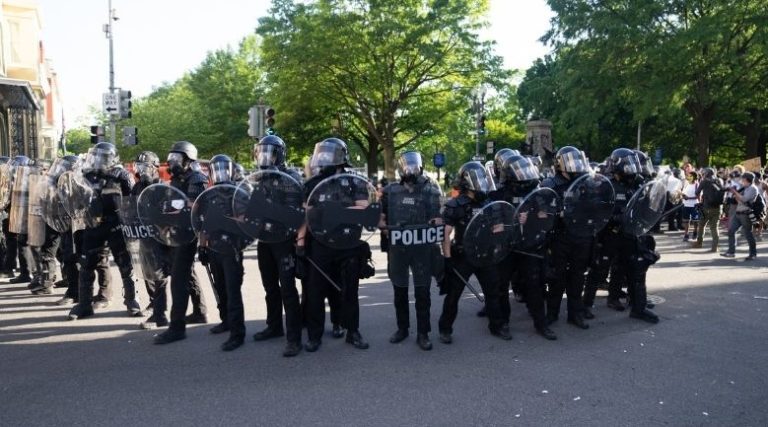The debate over qualified immunity continues in cities and towns across the United States as elected officials and anti-police activists clash with law enforcement leaders who are trying to keep communities safe.
There is a lot of information — and misinformation — about qualified immunity out there right now. This article will break down several key qualified immunity pros and cons to help cut through the spin and give you the tools you need to make an informed decision for yourself.
As outlined in our Qualified Immunity Project, qualified immunity is a legal provision that protects government officials, like law enforcement, from being held personally liable for things that happen on the job unless they violate a “clearly established law.”
In the 2009 case Person v. Callahan, the Supreme Court said, “qualified immunity balances two important interests—the need to hold public officials accountable when they exercise power irresponsibly and the need to shield officials from harassment, distraction, and liability when they perform their duties reasonably.”
Pros: Qualified Immunity Benefits
Qualified immunity benefits police and other law enforcement officials because it prevents them from being targets of frivolous lawsuits while they are doing their jobs to keep communities safe. Officers can make the best decisions for a given situation without needing to worry about being sued over their actions later on.

Qualified immunity also benefits the public because they can trust that police will take the best actions needed to maintain law and order and keep communities safe. It helps build trust in police, despite efforts from anti-police advocates to erode that trust.
Finally, qualified immunity is an essential part of recruiting and retaining quality police officers. Without it, there could be a chilling effect on people who want to become officers because they do not want the personal and professional strife that comes with frivolous lawsuits.
Cons: Dangers of Qualified Immunity Reform
Amid the constant calls to “defund the police,” qualified immunity is lumped in with other police reforms that Black Lives Matter and other anti-police groups seek to move forward. However, repealing qualified immunity is very dangerous for several reasons that directly impact the safety and well-being of our communities and the people who live in them.
Getting rid of qualified immunity means that police will need to second guess every decision they make out of fear that they could be sued if something goes wrong. Everyone makes mistakes, and it is profoundly unfair to the people who are charged with protecting and serving our country to have a constant threat hanging over their heads. They deserve better, and qualified immunity provides just that.
Without qualified immunity in place, the playing field is wide open for activist judges to make legal decisions that are harmful toward police based on their feelings, rather than on the law itself. As disrespect for police remains at all-time highs, the last thing we need is to give more ammunition to people who want to act against the interest of the important work that police do day in and day out.
For more information on qualified immunity and how you can support the fight to keep it, visit National Police Support Fund’s Qualified Immunity Project.
Image Credit: Photo by Ryan Kosmides on Unsplash









